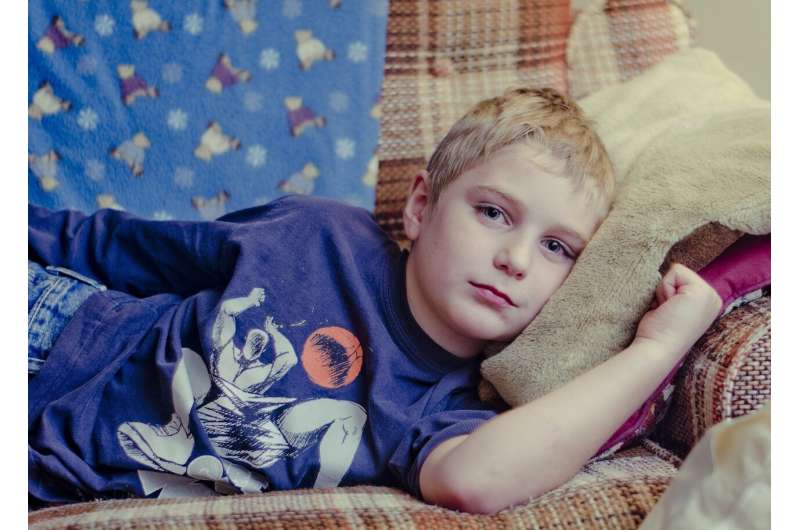Addressing Childhood Chronic Pain: The Role of School Nurses in Management and Care

A significant portion of children suffer from chronic pain impacting their daily lives. Training school nurses and community health providers in pain management strategies offers a promising solution to improve access and long-term outcomes for affected children.
Chronic pain conditions such as joint pain, headaches, stomachaches, and fibromyalgia are often associated with adults, but they are actually common among children as well. Surprisingly, about 25% of children experience persistent pain that can significantly impact their daily lives. Contrary to the belief that childhood is a time of optimal physical health, many young individuals face long-lasting pain conditions. For instance, some children suffer from migraines so severe that they are unable to attend school or engage with peers.
As a licensed pediatric pain psychologist, I focus on developing psychological care strategies tailored for children with chronic pain. Effective treatment options exist, but access remains a challenge, especially for families living far from major medical centers or lacking sufficient insurance coverage. To bridge this gap, efforts are underway to train school nurses and community health providers to deliver such care, making pain management more accessible at the community level.
Chronic pain in children is persistent, with many experiencing symptoms into adulthood. It disproportionately affects children from lower-income families, who often face greater barriers to healthcare, safety concerns, and increased exposure to violence. The consequences of untreated pain include frequent school absences—about one in five school days missed—and subsequent impacts on academic achievement, with many children less likely to graduate high school. Coinciding mental health issues such as anxiety and depression are also common. Additionally, childhood chronic pain is linked to a higher risk of opioid use later in life, raising significant public health concerns.
Traditional pain medication approaches, like ibuprofen or acetaminophen, are generally ineffective in managing long-term pain in children. Evidence shows that medications alone do not help children return to their normal routines, including school and recreational activities. The most supported treatment modality is cognitive behavioral therapy (CBT), which teaches children about pain mechanisms, problem-solving skills, relaxation techniques, and activity pacing. Unlike short-term medication relief, CBT has been shown to produce lasting improvements, enabling children to manage their pain better and restore their functioning.
Research has demonstrated the effectiveness of CBT in managing various childhood pain syndromes, such as functional abdominal pain and childhood-onset lupus. These interventions not only alleviate pain but also reduce associated anxiety and depression. While web-based tools and mobile apps improve access to care, they are most effective when combined with provider-led treatment sessions, as fully automated online programs often have low completion rates.
Since many healthcare providers lack training in psychological therapies for pediatric pain, community-based strategies are essential. School nurses and other community health workers are often the first to encounter children with chronic pain. Programs are now being developed to train these providers in cognitive and behavioral techniques, empowering them to deliver effective pain management and support continued school attendance.
Our ongoing work aims to extend these training initiatives to rural and underserved communities, ensuring children everywhere can access pain relief strategies. By equipping more community providers with these skills, we hope to improve long-term health outcomes and foster resilience among children suffering from chronic pain.
Source: https://medicalxpress.com/news/2025-06-children-chronic-pain-school-nurses.html
Stay Updated with Mia's Feed
Get the latest health & wellness insights delivered straight to your inbox.
Related Articles
Innovative Rehabilitation Technique Enhances Gait Recovery in Stroke Patients via Spinal and Hip Stimulation
A new neuromodulation approach combining spinal and hip stimulation shows promising results in improving gait in chronic stroke patients, offering hope for enhanced recovery.
Star-Shaped Brain Cells Offer New Hope for Personalized Bipolar Disorder Treatment
Research uncovers metabolic differences in astrocytes based on lithium response, paving the way for personalized bipolar disorder treatments.
New Vaccination Strategy Shows Promise in Preventing Recurrence of Colorectal and Pancreatic Cancers
A novel off-the-shelf vaccine shows promise in preventing recurrence of colorectal and pancreatic cancers with KRAS mutations, offering hope for improved cancer immunotherapy outcomes.
Revolutionary AI Tool Promises Better Diagnosis and Management of Type 1 Diabetes
A new AI-powered risk assessment tool utilizing microRNAs offers early detection and personalized treatment predictions for type 1 diabetes, promising to revolutionize disease management.



